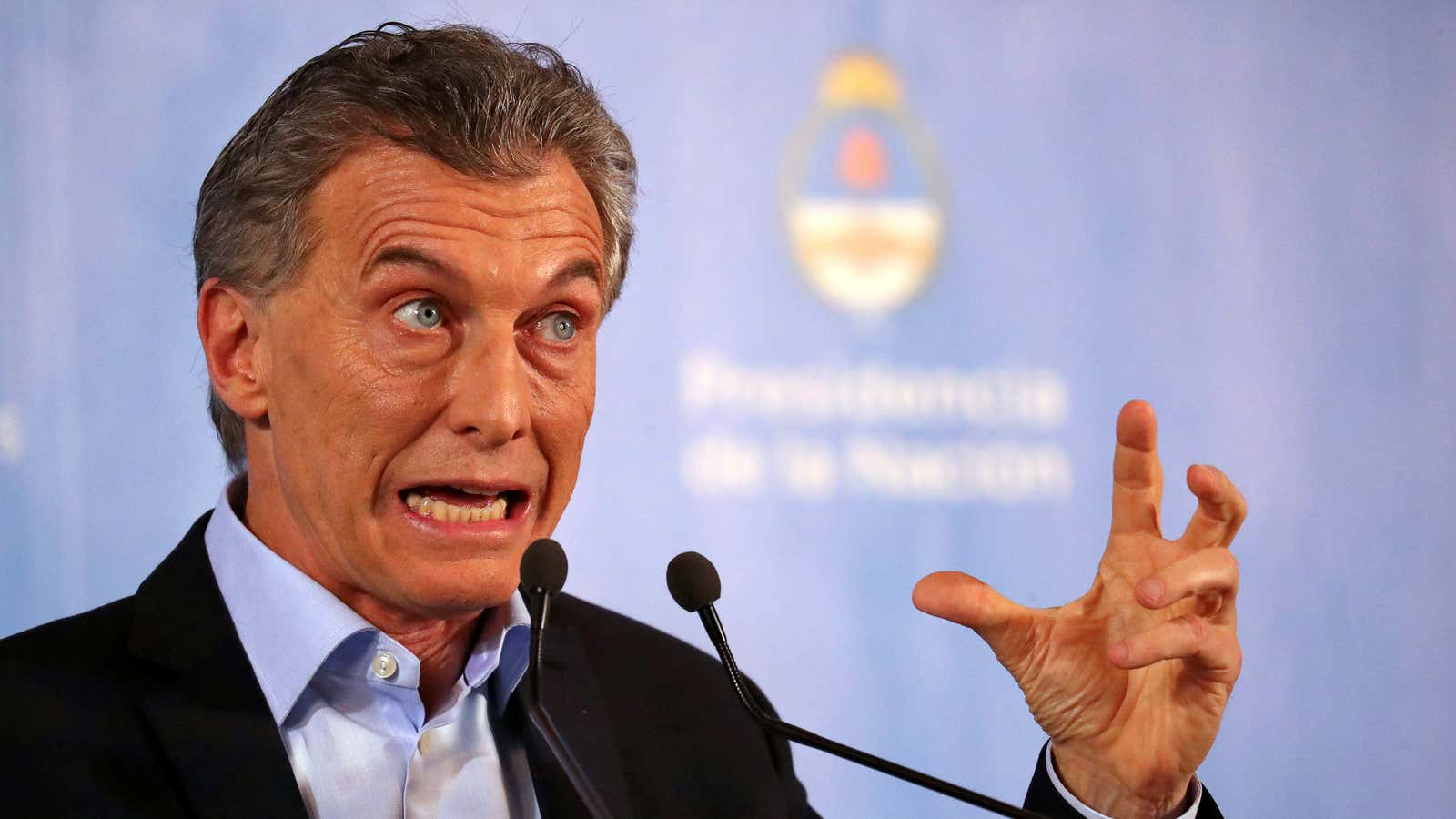After just a brief respite, the turmoil in emerging market currencies has resumed. What began in Argentina and Turkey has snowballed into broader collapse in confidence that has policy makers in Indonesia, India, South Africa, and Brazil scrambling to protect their economies.
Left unchecked, more nations could get wrapped up in the declines, threatening their country’s and the world’s economic growth.
The Turkish lira, which has been relentlessly setting new all-time lows, proved to be the “canary in the coal mine” for troubles across emerging markets, according to strategists at BNY Mellon. Traders worry about countries with large current account deficits and a large stock of dollar-denominated debt in a world with rising interest rates and a stronger dollar, according to the bank.
This week, the Argentine peso usurped the Turkish lira to become the worst performing emerging market currency this year (paywall). It has now lost more than half of its value since the end of 2017.
Argentina’s currency crisis
Argentina’s problems aren’t getting any better, despite taking conventional measures to stem a currency crisis: raising interest rates, selling reserves, and reducing government spending. In June, the government even repaired ties with the International Monetary Fund (IMF) after a decade-long break.
In a poorly communicated move the government asked the IMF to speed up the release of the $50 billion in funds from its new agreement. It spooked traders. The peso resumed its plunge. Desperate to resolve the crisis, the central bank raised interest rates to 60%, the highest in the world. The peso kept falling.
Turkey’s currency crisis
Turkey refuses to raise interest rates to stem its crisis, making matters worse. Instead president Recep Tayyip Erdogan is trying to use small fiscal measures to end the crisis. Markets reacted negatively to this. Erdogan is holding steadfast to his view that higher interest rates will lead to inflation. (The opposite is true.) He also blames a US-led conspiracy for the economic problems.
Analysts at ING say traditional measures, i.e. raising rates, are needed to convince traders to buy the lira again. But Commerzbank strategists say that it could be too late for that. “In Turkey we have probably already reached a point at which monetary policy alone cannot save the lira any longer but where this has to be accompanied by political measures,” they wrote in a note to clients.
The lira caught a small respite after the government increased the tax on foreign exchange deposits and reduced the tax on lira deposits on Aug. 31. Many analysts aren’t convinced the confidence will last. The central bank’s deputy governor is said to be leaving, creating a vacancy that president Erdogan can fill to further cement his influence over monetary policy.
India’s currency crisis
Commerzbank warns that the lesson from Turkey and Argentina is that other emerging market currencies shouldn’t watch their currencies depreciate for too long. The bank says they need to show they are fostering an economy that can sustainably support their current account deficits.
That warning is being sent in India’s direction. The rupee has suffered its worst monthly decline in more than three years (paywall). Most recently falling past the psychologically important level of Rs70 per dollar to an all-time low.
Indonesia’s currency crisis
Meanwhile, the Indonesian rupiah has tumbled to its lowest level since the 1998 Asian financial crisis.
It’s getting harder to believe that these currency troubles are idiosyncratic events coincidentally happening in several countries at the same time. The troubles appear are spreading between them (paywall), with one currency’s decline precipitating falls in other corners of the world.
